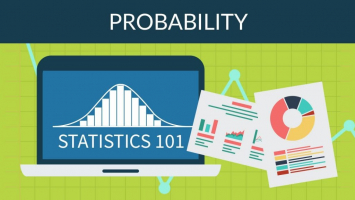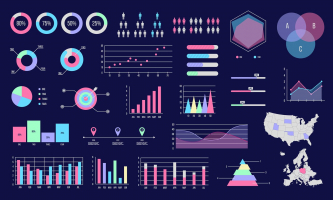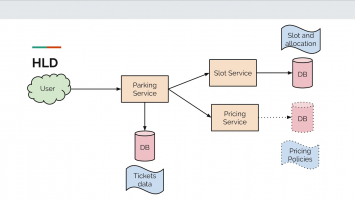Top 15 Best Online Public Health Courses
These free online public health courses will be useful to you if you have a passion for public health education. These programs are not only cost-free but also ... read more...convenient for practically everyone's schedule. Taking a free online public health course is an excellent method to find out if public health is the perfect career route for you if you're not sure. Public health experts as well as those just entering the field might benefit from these free online courses on the subject. The Best Online Public Health Courses are listed below, so what are you waiting for?
-
Every year, thousands of new epidemiological studies are undertaken, and the findings of these research can have a significant influence on how we live. Based on the results of these research, decisions are made about what you eat, how much you exercise, where you live, and the medical care you will receive if you become ill. With the help of Epidemiology for Public Health specialization, you will be able to properly understand epidemiological research, take into account its limits, and create your own investigations.
Measuring Disease in Epidemiology, the first course in the specialization, examines the primary measurements used in epidemiology and how these can influence decisions about public health policy, screening, and prevention. Study Designs in Epidemiology, the second course, gives an overview of the most popular study designs, their advantages and disadvantages. The third course, Validity and Bias in Epidemiology, extends the foundational ideas covered in the earlier courses by talking about bias and confounding and how these could influence study outcomes. Additionally, it gives the necessary abilities to guard against and manage confusion and bias as well as think critically about causation.
You will be prepared to conduct and evaluate epidemiological research once you have completed this specialization, and you will be eligible to enroll in more difficult epidemiology courses. Although Epidemiology for Public Health specialization is a component of the GMPH curriculum, it can be pursued separately.You will apply the knowledge you have gained to compute the proper measures of frequency and association in a range of research types through the assignments for this specialization. Additionally, you'll practice spotting bias and confounding in epidemiological studies and applying the appropriate controls. You'll be able to determine which study findings to believe and accurately understand how they apply in real life by doing that.
What you will learn
- In order to describe disease frequency, association, and attributable risk for specified situations, calculate and interpret the necessary measurements.
- To interpret these numbers in the context of screening, compute the sensitivity, specificity, positive, and negative predictive values.
- To outline the advantages and disadvantages of various epidemiological study designs, compare and contrast them.
- Recognize the various biases that might affect epidemiological studies so that you can employ techniques to lessen them.
Skill you will gain
- Association
- Screening
- Causal Inference
- Clinical Study Design
- Bias
- Incidence
- Epidemiology
- Prevalence
- Randomized Controlled Trial
- Case-Control Study
- Study designs
- Cohort
Instructor: Filippos Filippidis
Offered by: Imperial College London
Coursera rating: 4.8/5.0, 839 ratings
Enroll here: https://www.coursera.org/specializations/public-health-epidemiology

https://prodiet.com.br/ 
https://thingshealth.com/ -
Welcome to R for Public Health's linear regression tutorial! "The art and science of avoiding disease, extending life, and promoting health through the coordinated efforts of society" is the definition of public health. Clearly, a key component of this is understanding what causes sickness and what exacerbates it. This necessitates the creation of statistical models that detail how environmental and patient-related factors influence our propensity to become ill.
Linear Regression in R for Public Health course will teach you how to build such models from scratch, starting with an introduction to correlation and linear regression, followed by instructions on how to import and examine your data and then apply models. These models will explain how patient and other factors affect outcomes such as lung function using the example of respiratory disease.
The remaining courses in this series will examine two additional members of the family of regression models, of which linear regression is one. Even though the mathematical intricacies vary, regression models have a lot in common. You will learn how to prepare the data, evaluate how well the model fits the data, and test the model's underlying assumptions—all of which are crucial steps in any regression analysis. R is a free and adaptable piece of software that statisticians and data scientists use in academia, government, and business all across the world.What you will learn
- Describe when it is appropriate to employ a linear regression model.
- Before beginning a model analysis, use the R software to read in and verify a data set's variables.
- Check model assumptions, fit a multiple linear regression model with interactions, and then analyze the results.
Skill you will gain
- Correlation And Dependence
- Linear Regression
- R Programming
Instructors: Alex Bottle and Victoria Cornelius
Offered by: Imperial College LondonCoursera rating: 4.8/5.0, 447 ratings
Enroll here: https://www.coursera.org/learn/linear-regression-r-public-health
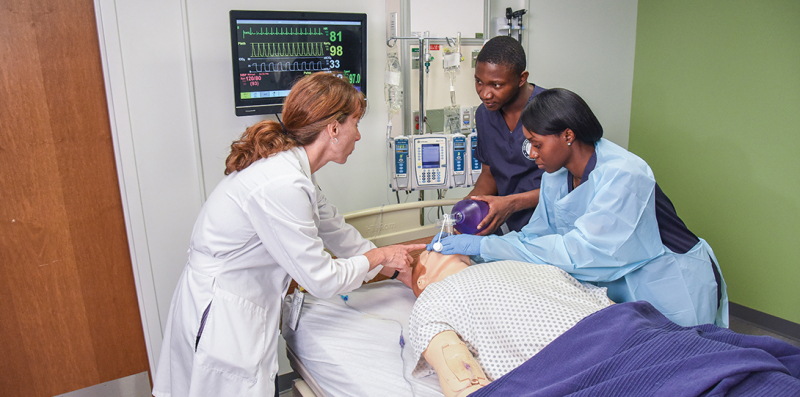
https://nursing.uic.edu/ 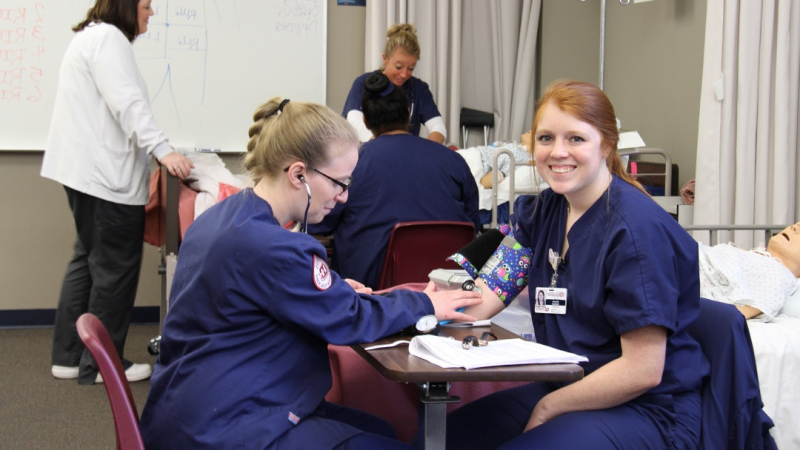
https://www.kremlin2000.ru/ -
Welcome to R for Public Health Logistic Regression! Why not just use logistic regression for public health purposes? Every data set needs to be taken into account in a specific way, but public health data sets have unique characteristics that require extra care. Simply put, they're a disaster. This course is hands-on, just like the others in the series, and will give you lots of practice using R on real-world, messy data. The course's worked example is identifying patients with diabetes based on a collection of patient characteristics.
Public health must take into account the viewpoint of the population as well as the perspective of the individual patient because the interpretation of the regression model's outputs can vary based on the viewpoint that you adopt. Nevertheless, a lot of the material taught in this course holds true for logistic regression when applied to any set of data, so you will be able to apply the concepts discussed in this course to logistic regression more generally as well.
The first two courses in the Statistics for Public Health specialization address topics like hypothesis testing, p values, and how to use R. This course builds on those topics. Before starting this course, you should examine Linear Regression for Public Health and Statistical Thinking for Public Health if you are not familiar with these concepts. You will enjoy expanding your knowledge and abilities in Statistics for Public Health: Logistic Regression for Public Health if you are currently proficient in these abilities.What you will learn
- As a first step for advanced analysis using the R software, describe a data set from scratch using descriptive statistics and basic graphical techniques.
- Interpret the results of your analysis and consider the potential contributions of bias and chance.
- Interpret the results of multiple logistic regression analysis using R.
- Review the multiple logistic regression model assumptions in R.
Skill you will gain
- Logistic Regression
- R Programming
Instructor: Alex Bottle
Offered by: Imperial College London
Coursera rating: 4.8/5.0, 324 ratings
Enroll here: https://www.coursera.org/learn/logistic-regression-r-public-health

https://www.sbccollege.ca/ 
https://honorlock.com/ -
People who work in or want to work in the field of public health at the local, regional, and international levels should choose Epidemiology in Public Health Practice specialization. You'll learn how to use the fundamental epidemiologic toolset over the course of five courses taught by professors from the top public health school. These courses will teach you how to measure population health, evaluate interventions, gather and analyze data, and investigate outbreaks and epidemics.
You will gain some fundamental knowledge and abilities from this initial course that will improve your capacity to assess and comprehend the state of your neighborhood. You will learn some useful skills and knowledge in this course that you can hopefully use in your professional activities. Epidemiology is frequently referred to as the foundational field of study in public health. This second course will assist you in defining epidemiology as it relates to public health practice. Epidemiology informs interventions to improve population health and evaluates policies and programs.
Your technical knowledge and skill-building will be aided by this third course as you prepare to deal with various surveillance systems. This course will emphasize system objectives, data reporting, the fundamental surveillance characteristics, and performance evaluation along the way. This course is for you if you build or deploy surveillance systems, want to do so, or use the data obtained through surveillance. Additionally, it's for those who want to learn more about this essential epidemiologic tool and public health practice.
You will expand on the material from the earlier courses in this specialization in order to concentrate on a few very specific skills linked to public health surveillance in this last course. You'll learn how to make the most of surveillance data analysis, paying close attention to how to evaluate time trend data in order to spot temporal anomalies and person, place, and time in relation to surveillance data. Additionally, you'll look at some of the intricate legal issues that influence how surveillance data is used as well as presenting techniques. The topic of non-communicable chronic illness surveillance and how data can be utilized to help preventative efforts will then come into focus. Last but not least, you'll look into specialized surveillance techniques like syndromic surveillance, antibiotic resistance, and event-related surveillance.
Learners will engage in a range of project exercises throughout Epidemiology in Public Health Practice specialization to address real-world issues faced by professional epidemiologists in the course of their job, including reflection, analysis, computation, application, mapping, and assessment.What you will learn
- Become familiar with the epidemiologic toolset
- Measure the health of populations
- Collect and analyze public health surveillance data
- Investigate disease outbreaks and epidemics
Skill you will gain
- Outbreak investigation
- Public Health Surveillance
- Visualization
- Statistics
- Epidemiology
- Estimation
- Geographic Information System (GIS)
- Statistical Methods
- Data Collection
- Surveillance
- Disease Surveillance
- Data Analysis
Instructors: Aruna Chandran, Keri Althoff, Emily Gurley, and 2 more instructors
Offered by: Johns Hopkins University
Coursera rating: 4.7/5.0, 3.176 ratings
Enroll here: https://www.coursera.org/specializations/professional-epidemiology

https://mollusan.pl/ 
https://www.unityrehab.com/ -
There are statistics everywhere. the likelihood that today will be rainy. trends in unemployment rates throughout time. the chances of India winning the upcoming cricket world championship. They began as a little bit of fun in sports like football but have developed into enormous business. Not least in the vast and essential field of public health, statistical analysis is crucial in medicine.
You will gain a better understanding of medical research in Statistical Analysis with R for Public Health Specialization as well as how and why a hypothesis is developed from a hazy idea. The fundamental statistical ideas of sampling, uncertainty, variation, missing values, and distributions will be covered. Then you'll get your hands dirty by using R, one of the most popular and adaptable free software programs available, to analyze data sets pertaining to some significant public health issues, such as fruit and vegetable consumption and cancer, risk factors for diabetes, and predictors of death following heart failure hospitalization.
Statistical Analysis with R for Public Health Specialization is a part of our future Global Master in Public Health degree, which is scheduled to begin in September 2019. This can be considered as one of the Best Online Public Health Courses. You will learn about important ideas and a data collection that will be used as a worked example throughout each lesson. Public health data are disorganized, with many instances of missing numbers and odd distributions. The information you'll utilize comes from actual patient-level data sets, either directly or indirectly (all anonymised and with usage permissions in place).
When you run into standard data and analytical challenges, the emphasis will be on "learning through doing" and "learning through discovering," which you can solve and discuss with your fellow students. Before getting access to the solutions and explanations offered by the teachers, you'll have the option to figure things out on your own and with your peers.What you will learn
- To defend the crucial role of statistics in contemporary public health research and practice, one must be aware of the fundamental elements of statistical reasoning.
- As a first step in more complex analysis using the R software, describe a given data set from scratch using descriptive statistics and graphical techniques.
- Utilize the right techniques to create and analyze statistical correlations between variables in a data collection in R.
- Analyze the outcomes of your analysis and evaluate how chance and bias contributed to your findings.
Skill you will gain
- Statistical Thinking
- Survival Analysis
- Logistic Regression
- Data analysis with R
- Linear Regression
- Run basic analyses in R
- R Programming
- Understand common data distributions and types of variables
- Formulate a scientific hypothesis
- Correlation And Dependence
Instructors: Alex Bottle and Victoria Cornelius
Offered by: Imperial College London
Coursera rating: 4.7/5.0, 1.470 ratings
Enroll here: https://www.coursera.org/specializations/statistical-analysis-r-public-health#instructors

https://www.verywellhealth.com/ 
https://as.vanderbilt.edu/ -
It's a pleasure to welcome you to Introduction to Statistics & Data Analysis in Public Health! This course will teach you the fundamental concepts of statistical analysis, such as the different types of variables, typical distributions, and hypothesis testing, but it will also give you the skills to take a data set that you have never seen before, describe its key characteristics, learn about its advantages and disadvantages, perform some critical preliminary analyses, and then create and test hypotheses based on means and proportions. After completing Statistics & Data Analysis in Public Health course, you'll be well-equipped to advance to more complex analyses and enroll in the following courses in the series. This can be seen as one of the Best Online Public Health Courses.
R, a widely used, adaptable, and totally free piece of software by statisticians and machine learning experts worldwide, will be taught to you. You will first get practical knowledge of how to formulate a testable hypothesis by studying examples of media-reported medical research. Then you'll examine a data set on fruit and vegetable consumption patterns, which is really chaotic since real-world public health data sets are like that.
Along the process of Statistics & Data Analysis in Public Health course, there will be brief tests with feedback to make sure you understand. The training will hone your capacity to think critically and not take anything for granted, which is more crucial than ever in the era of unchecked algorithms and fake news. Although some equations are provided to help with understanding, this is not one of those courses that requires you to have a degree in mathematics to follow it. Only rudimentary math skills and experience with graphical and tabular methods of results presentation are required. There is no presumption of programming or R knowledge.What you will learn
- Substantiate how important statistics are to current public health research and practice.
- Descriptive statistics and graphical techniques in R can be used to describe a data collection from scratch, including data item attributes and data quality issues.
- R allows you to establish and analyse statistical correlations between variables within a data collection by choosing and using the right procedures.
- Interpret the results of your analysis and evaluate the impact of bias and chance
Skill you will gain
- Perform fundamental analysis in R
- R Programming
- Recognize typical data distributions and variable types
- Create a scientific premise.
Instructor: Alex Bottle
Offered by: Imperial College London
Coursera rating: 4.7/5.0, 1.285 ratings
Enroll here: https://www.coursera.org/learn/introduction-statistics-data-analysis-public-health

https://www.healthworkscollective.com/ 
https://www.viewsonic.com/ -
An introduction to systems thinking and systems models in public health is provided in Systems Thinking In Public Health course. Public health and health policy issues sometimes involve numerous institutions, actors, and risk factors, making them complicated problems. Traditional statistical approaches cannot be used to assess or forecast an outcome if it depends on several interacting and adapting pieces and players. A key competency in public health is systems thinking, which aids in the development of programs and policies that are conscious of and ready for unexpected consequences. It is considered as one of the Best Online Public Health Courses.
The activity of integrating numerous viewpoints and synthesizing them into a framework or model that can describe and forecast the various ways in which a system may respond to policy change is a crucial component of systems thinking. Systems modeling and thinking come up with strategies that take into consideration the complexity of the real world.
With funding from the International Development Research Centre, Ottawa, Canada, the World Health Organization's Alliance for Health Policy and Systems Research oversaw this project. The Future Health Systems research consortium received further assistance from the Department for International Development (DFID) thanks to a grant (PO5467).Instructors: David Bishai, Ligia Paina
Offered by: Johns Hopkins University
Coursera rate: 4.6/5.0, 840 ratings
Enroll here: https://www.coursera.org/learn/systems-thinking

https://www.freelancerfaqs.com/ 
https://flego.nl/ -
People are becoming more depending on one another on both a social and economic level. People's health on one side of the world has an impact there. Global security talks and strategies are increasingly heavily influenced by global health, which was previously only an ethical consideration. To assist you in contextualizing your experiences as a rookie or experienced responder to global health emergencies, a varied team of specialists in this developing field has come together.
Urbanization, environmental stress, and resource scarcity will be examined as part of the first week's introduction to global health themes. You will focus on issues related to food, water, energy, and the dangers of climate change during the second week of Foundations for Global Health Responders course. The third week will focus on the prevalence of non-communicable diseases, the global burden of disease, infectious diseases, mental health, and access to care.
In week four, you will study about the various global health stakeholders, including NGOs, governments, and non-state actors; where funding comes from, how it is distributed, and the difficulties associated with monitoring results; and what human rights are and how they are safeguarded. You transition to complex humanitarian catastrophes in week five, including forced migrations, armed conflict, criteria for response, and the legal justification for interventions. Finally, in week six, you will learn how to be a successful participant by learning about taking care of yourself, including pre-trip planning, knowing hazards associated with international travel, and physiologic vulnerability.By the completion of Foundations for Global Health Responders course, you will be more informed about the world you live in and have a better grasp of the processes by which governments and organizations work to promote health throughout the world. Additionally, you'll discover how to safeguard your safety and participate intelligently in the field of global health. You'll be equipped to engage in global health activities all around the world, bring your talents to chronic or urgent issues, and assist in meeting urgent requirements.
Instructor: Dr. Jay Lemery, MD
Offered by: University of Colorado System
Coursera rating: 4.6/5.0, 28 ratings
Enroll here: https://www.coursera.org/learn/ghresponder

https://answerly.net/ 
https://www.bluthochdruck-aktuell.de/ -
Through disease prevention, education, access to healthcare, and disease research, the field of public health seeks to both enhance the health and well-being of communities and ensure their safety. Public health aims to increase people's quality of life, prolong their lives, and prevent diseases.
Public health professionals will identify potential problems in communities, solve health problems, enforce laws and regulations that protect health and ensure safety, develop plans that support individual and community health efforts, and conduct research on new insights and solutions to health problems. They will also educate, inform, and empower people about health issues, especially those who are at risk.
You might wonder how public health could be significant to human. The majority of people, in reality, don't consider it until a catastrophe, like an epidemic or pandemic, draws their attention. Life expectancy has increased in many countries throughout the world as a result of public health measures like immunizations, clean air and water regulations, family planning, and many more. This Public Health course is intended for students studying public health as well as anyone else who wants to learn more about some of the illnesses that are significant issues in the field of public health. This is one of the Best Online Public Health Courses.
What you will learn
- You can learn about zoonoses, noncommunicable diseases, communicable diseases, sexually transmitted diseases, and public health organizations.
- Additionally, this course includes a presentation with several sites where you can discover information pertinent to your thesis.
Who this course is for
- Public health students and every other people who want to learn and get new informations about some of the diseases which represent major Public Health problems.
Instructor: Ľubomíra Sopková
Udemy rating: 4.6/5.0, 7 ratings
Enroll here: https://www.udemy.com/course/public-health-z/

https://www.safetybayps.wa.edu.au/ 
https://www.premium-a.ru/ -
Greetings and welcome to R for Public Health Survival Analysis! This one will demonstrate how to conduct a survival analysis, often known as a "time to event" study, and define terms like "hazard" and "censoring," which have particular implications in this context. You'll discover how to create a data set from scratch, import it into R, perform necessary descriptive analysis to understand the characteristics and peculiarities of the data, move from Kaplan-Meier plots to multiple Cox regression, and more using the well-known and entirely free software R.
You'll learn how to investigate the factors that predict the mortality of heart failure patients who are admitted to the hospital using data simulating actual, messy patient-level data in Survival Analysis in R for Public Health course. You'll learn how to evaluate model assumptions, fit the model to the data, and use a few easy workarounds for typical issues that real public health data commonly have. To ensure you comprehend the material, there will be brief tests on the videos and the R exercises with immediate feedback.
Although some equations are provided to help with understanding, this is not one of those courses that requires you to have a degree in mathematics to follow it. Basic numeracy and experience with graphical and tabular methods of results presentation are prerequisites.What you will learn
- Run Cox regression and Kaplan-Meier graphs in R, then analyze the results.
- As a prerequisite for more complex research, describe a data set from scratch using descriptive statistics and basic graphical techniques.
- Describe and contrast a few typical methods for selecting a multiple regression model.
Skill you will gain
- Recognize typical methods for selecting which predictors to include in a regression model.
- Run R to compute and understand Kaplan-Meier curves.
- Create a R Cox regression model.
Instructor: Alex Bottle
Offered by: Imperial College London
Coursera rating: 4.5/5.0, 281 ratings
Enroll here: https://www.coursera.org/learn/survival-analysis-r-public-health

https://www.neilsquiresolutions.ca/ 
https://www.welcometothejungle.com/ -
Non-communicable diseases (NCDs) are the number one cause of death worldwide, accounting for seven out of every ten fatalities. Particularly in sub-Saharan Africa, low- and middle-income countries account for 70% of the deaths brought on by these illnesses.
Learners will study about non-communicable diseases in the course Non-Communicable Diseases For Public Health. The primary goal of this brief course is to promote non-communicable disease literacy in an effort to improve health outcomes by applying the course material to daily life. In order to learn about different non-communicable illnesses and how to avoid and control them, this course is open to anybody, including individuals, community health professionals, teachers, students, and even parents.
Non Communicable Diseases for Public Health course consists of 9 modules and has been written in plain language that is accessible to the general public. In order to improve learning, it modifies the usage of videos, images, and audios. In order to give the student a deeper understanding of the subject, the course will also supply supplemental course materials and research articles.
Hoping that by taking this course, you will learn more, have fun while doing it, and share what you learn with someone else. Since knowledge is power, it has never been more crucial to have current knowledge about non-communicable diseases.What you will learn
- The causes, management, and prevention of non-communicable diseases will all be taught to students.
- Students will also study about current NCD challenges, such as how antibiotic resistance, human rights, and climate change relate to NCDs.
- Students will learn more in-depth information on non-communicable diseases.
- Students will gain knowledge from actual instances of international work in the field of non-communicable illnesses.
Who this course is for
- Students and enthusiasts interested in public health and global health who wish to learn more about non-communicable diseases.
- Practitioners and community health workers interested in learning about non-communicable diseases
- People who want to learn more about non-communicable diseases.
Instructor: Stephen Odhiambo Ogweno
Udemy rating: 4.3/5.0, 63 ratings
Enroll here: https://www.udemy.com/course/non-communicable-diseases-for-public-health/

https://www.zimil.com.ar/ 
https://blog.dmtraining.net/ -
The term "morbidity" describes a population's prevalence of a disease. By evaluating data and providing correct interpretations to stakeholders in the public and private sectors, epidemiologists are eager to investigate morbidity and how it impacts the population. In order to develop more effective interventions and health policies, they analyze incidence rates and prevalence rates to determine the frequency and impact of disease in a community.
You will learn about these crucial epidemiologic metrics in Measures of Disease Frequency & Morbidity course, as well as how to gather data and what to watch out for when confirming the veracity of the results. You will examine some actual statistics and work through sample practice problems to get a better understanding of how the factors that affect the burden of disease in a community relate to one another.
Once enrolling Measures of Disease Frequency & Morbidity course, you will always have access to all course materials, including lecture videos, practice questions, and downloadable resources, should you need to review or study the subject. Additionally, you will get a Certificate of Completion that you may add to your LinkedIn page, curriculum vitae, or resume. Therefore, begin learning and expanding your knowledge right away!What you will learn
- Relevance of epidemiological metrics like ratios, proportions, and rates
- How to calculate cumulative incidence and incidence rates
- How to do period and point prevalence calculations
- Incidence and prevalence rates in relation to one another
- Accurate data collection and interpretation are crucial for public health action.
Who this course is for
- Medical students
- Health professionals
- Laboratory scientists
- Health science students
Instructor: Professor Candelario
Udemy rate: 4.3/5.0, 27 ratings
Enroll here: https://www.udemy.com/course/measures-of-disease-frequency-morbidity/

https://www.inc.com/ 
https://www.edutopia.org/ -
The fundamentals of epidemiology will be well understood by learners, who will also comprehend the principles of public health science and use their understanding to examine potential disease outbreak scenarios. Every lecture follows a straightforward format, much like a Khan Academy course.
Public Health: Learn the Principles of Epidemiology course is divided into three main sections, each of which builds the groundwork for your future in epidemiology. The first introduces you to epidemiology as a science and covers elements of disease transmission you must understand in order to look into outbreaks. The uses, categories, and procedures of efficient disease surveillance are described after the principles of disease surveillance are explained. The CDC-mandated 13 Step method is followed in a section specifically devoted to the examination of a disease outbreak. In order to increase your interest in the material, each lecture includes examples, external resources, and quizzes.
The most thorough start-to-finish course on epidemiology and epidemic investigation available is offered in this course, which is geared for complete beginners. Public Health: Learn the Principles of Epidemiology course is jam-packed with tests, outside sources, articles, terminology, and actual public health case studies! From total novice to disease outbreak investigator!What you will learn
- Define and comprehend the many branches of epidemiological science.
- Know risk variables' effects on illness susceptibility.
- The steps involved in gathering, analyzing, and interpreting public health data
- The various control and prevention techniques; determining whether intervention is necessary
- Common illnesses and their causes (cause)
- Examine both hypothetical and actual outbreak scenarios.
- The three triads of disease
- How to read epidemiological charts and graphs
- How to form, test, and establish causal relationships
- Quantitative epidemiology using ratios and rates
- Biases and mistakes
Who this course is for
- This course is intended for those who want to gain a solid foundation in the fundamentals of epidemiology and epidemic investigation. By the end of the course, students will have advanced from complete beginners to being able to completely conduct an outbreak investigation.
Instructor: Cheng Zhou
Udemy rating: 4.2/5.0, 5 ratings
Enroll here: https://www.udemy.com/course/public-health-learn-the-principles-of-epidemiology/

https://www.healthcarelawfirm.net/ 
https://www.pcrm.org/ -
The value of expanding access to healthcare depends on how well it is delivered. Most people would agree that quality is crucial, but what is it? How is it defined by people? How is it measured by people? And perhaps most importantly, how can people improve it?
Improving Global Health: Focusing on Quality and Safety course is intended for anyone who are interested in healthcare and who want to learn more about how to assess and enhance care for themselves, their organizations, or their nations. Each lesson will involve active participation and offer useful practical tools for the students. You will have the ability to ask questions, make specific suggestions, and advocate for change.
Leading thinkers with real-world experience managing businesses, hospitals, and health ministries were brought together for this course from all around the world. These individuals weren't only specialists in their fields. Therefore, enroll in this course if you are a doctor, nurse, or other healthcare practitioner, a student of medicine, public health, or health policy, or a patient who just cares about receiving quality care. Improving Global Health: Focusing on Quality and Safety course is also for patients who are interested in learning about health policy.
What you will learn
- The connection between standard of living and public health
- A conceptual framework for analyzing and evaluating the quality of healthcare
- Approaches of measuring quality
- Information and communication technology's contribution to evaluating and enhancing quality
- Tools and background information to enhance the quality of healthcare systems' delivery
Instructor: Ashish Jha
Offered by: Harvard University
edX rating: unknown
Enroll here: https://www.edx.org/course/improving-global-health-focusing-on-quality-and-sa?index=product

https://www.dailymedicaldiscoveries.com/ 
https://story.hr/ -
The concerns of safety, quality, efficacy, and efficiency in a healthcare system are mostly addressed by health informatics technology (HIT), which deals with the collection, storage, and retrieval of data. A new approach to clinical workflow, evidence-based decision making, and team-based treatment can be made possible by properly managing dynamic data, such as electronic medical records, in order to improve general public health. Learn about the various healthcare systems around the world's deployment of healthcare informatics.
In order to navigate and alter the system, leaders and administrators in the healthcare sector also need a fundamental awareness of healthcare finance, risk, legal, and regulatory challenges. One of a leader's main duties is risk management. To foresee and deal with shifting dynamics, it is necessary to have a fundamental awareness of one's financial situation and the regulatory limitations they operate under.
The goal of Healthcare Analytics and Decision Making course is to help you identify creative approaches to reducing costs and enhancing access, quality, and safety. It will combine an emphasis on technology management with a finance component. By using sophisticated technologies, you will eventually learn how to evaluate the financial health of a healthcare company.What you will learn
- Recognize the principles of health informatics and how they impact population and public health.
- Compare the ways in which healthcare systems all throughout the world are utilizing health informatics.
- Utilize informatics to assess the state of the industry.
- Describe the newest developments in health informatics.
- How to determine whether economics is relevant to any element of healthcare.
- How to evaluate economic theories and frameworks in the context of healthcare.
- How to recognize the various facets of financing healthcare.
- How to evaluate economic issues so that you can create and apply economic policy.
- How to assess the financial benefits and political choices of healthcare market reform.
Instructor: Jody Woodworth
edX rating: unknown
Enroll here: https://www.edx.org/course/healthcare-analytics-and-decision-making-2?index=product

https://centersoveta.ru/ 
https://websta.me/



























